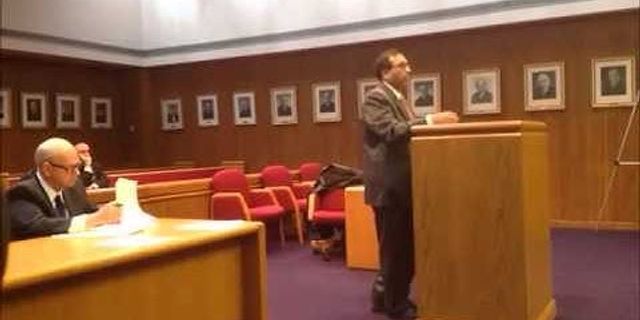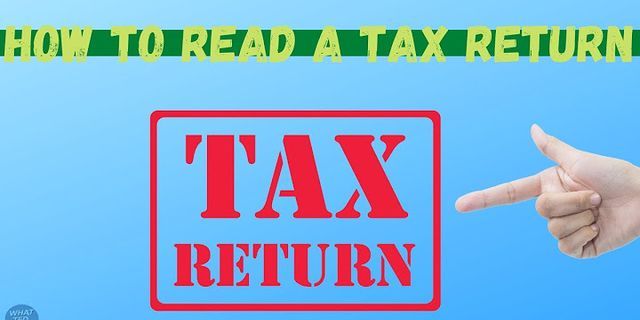Due date April 18th for 2021 business returns Tax rate on gross receipts, and 6.20% on taxable net income IMPORTANT UPDATE: From now on, please complete online returns and payments for this tax on the Philadelphia Tax Center. For help getting started, and answers to common questions, see our online tax center guide. You can choose to continue filing paper returns for this tax. Who pays the taxEvery individual, partnership, association, limited liability company (LLC), and corporation engaged in a business, profession, or other activity for profit within the City of Philadelphia must file a Business Income & Receipts Tax (BIRT) return. This includes:
In all of the situations described above, you must file a BIRT return whether or not you made a profit. If you have an active CAL but do not actively engage in business, you must file the BIRT return and tell the City that no business occurred. If you don’t file a return, you will receive a non-filer notice and court costs could be imposed. However, businesses with $100,000 in Philadelphia taxable gross receipts or less are not required to file a return. Instead, they may choose to file a No Tax Liability (NTL) form. The BIRT can be filed and paid online. Starting with payments due in April 2018 for Tax Year 2017, taxpayers who owe $5,000 or more for the BIRT are required to pay those taxes electronically. If you must amend a BIRT return, complete a new tax return with the updated amount(s). Place an “X” in the box that indicates the form is an amended return. Important datesThe BIRT must be filed and paid by April 15 of each year, for business activity from the previous calendar year. You may also need to pay estimated tax for the following year, depending on when you started business activity in Philadelphia:
Filing extensionNeed more time to prepare and file your Philadelphia Business Income and Receipts Tax (BIRT) returns? We will automatically grant you an extension of time to file up to 60 days from the April due date or the original due date of the BIRT return. When this initial 60-day extension period ends, we may grant you an additional extension time if the Internal Revenue Service (IRS) grants you an extension of time for filing the federal return. In effect, we will grant you a matching extension for filing the BIRT return up to the termination date of the federal extension period. Please be aware that if granted an extension period to file your BIRT return, it cannot exceed the end date of the federal extension period of up to six months from the original IRS filing due date. There’s no specific filing extension form for Philadelphia’s BIRT. Filing an extension payment voucher either by paper or online serves the dual functions of filing an extended return and making the extension payment. Please understand that an extension of time to file your returns does not grant you any extension of time to pay your taxes. Payments made after the original due date are subject to interest and penalty charges. See our interest, penalties, and fees page for more information about rates. If you have an overpayment or tax credit, which you do not wish to be refunded, please contact taxpayer services at (215) 686-6600 to request that it be applied to your desired tax period. You can also apply for credits online through the Philadelphia Tax Center:
Trade Show VendorsAs of Tax Year 2022, Trade Show Vendors in Philadelphia must use the BIRT-EZ annual form to file their returns on the Philadelphia Tax Center. As a tradeshow vendor, the Department of Revenue permits the use of separate accounting to calculate taxable receipts and net income for the specific event within the City of Philadelphia. Tradeshow Vendors can compute a separate Profit & Loss/ Income Statement for the specific event that reports the gross receipts generated and a computation of net income after deducting the ordinary, reasonable and necessary expenses related to the event. The Trade Show Vendor Form is no longer available. File your return online by:
Tax rates, penalties, & feesHow much is it?The current rates for the Business Income & Receipts Tax (BIRT) are 1.415 mills ($1.415 per $1,000) on gross receipts, and 5.99% on taxable net income. In 2019 the rate was 6.25% on taxable net income. The BIRT is based on both gross receipts and net income. Both parts must be filed. This is a completely separate tax from the Net Profits Tax (NPT), so it’s possible to have to pay both the BIRT and the NPT. What happens if you don't pay on time?If you don’t pay on time, interest and penalties will be added to the amount you owe. For more information about rates, see our Interest, penalties, and fees page. There are no extensions for tax payments, but you can apply for an extension to file your return. Your Commercial Activity License can be suspended or revoked if you don’t pay your taxes. For-profit businesses are not allowed to operate in Philadelphia if they don’t have an active Commercial Activity License. This means that if you fall behind with your tax payments, we can suspend your business operations until your account is current. Discounts & exemptionsAre you eligible for a discount?ExemptionsBeginning in tax year 2016, there is an exemption of the first $100,000 in gross receipts and a proportionate share of net income from the Business Income and Receipts Tax. Tax creditsSome tax credits reduce the amount of BIRT owed to the City. Regardless of whether your business qualifies for reductions or exemptions, you’re still required to file a BIRT return. Tax credits that can be applied against the BIRT include:
Visit the Tax Credits section of this site to find specific eligibility and filing requirements. For a complete listing of all credit programs, you can also visit the City’s online Business Services Center. Economic presence (for tax years starting January 1, 2019 and thereafter)Section 103 of the BIRT regulations were amended to reflect the ruling of the U.S. Supreme Court in the case of South Dakota v. Wayfair, Inc. A business is considered to have nexus in Philadelphia and is subject to BIRT if it has generated at least $100,000 in Philadelphia gross receipts during any twelve (12) month period ending in the current year. Active presence (in effect through tax year 2018)Section 103 of the BIRT regulations includes a definition of “doing business” in Philadelphia. If your business meets certain regulatory criteria, it may qualify for “active presence” treatment (i.e. the tax on gross receipts only). Can you be excused from paying the tax?Full exemptions are only available to certain organizations. In general, organizations that are exempt from filing and paying the BIRT are:
The list above is not exhaustive, and exclusions are based on the facts and circumstances of each business. Review the City’s Code and Revenue’s BIRT regulations to make sure you are eligible for an exemption. Businesses in the first two years of operations may be exempt from paying BIRT through the Jump Start Philly program. Businesses in the first three years of operations may be exempt from paying BIRT through the Sustainable Jump Start program. How to payFile and pay onlineYou can file BIRT returns and make payments through the Philadelphia Tax Center. Starting with payments due in April 2018 for Tax Year 2017, taxpayers who owe $5,000 or more for the Business Income and Receipts Tax are required to pay those taxes electronically. File a return by mailMail your return to: Philadelphia Dept. of Revenue Pay by mailMail all payments with a payment coupon to: Philadelphia Dept. of
Revenue Request a refund by mailMail your return and refund request to: Philadelphia Dept. of Revenue Forms & instructionsWhich is subject to gross receipt tax?A gross receipts tax is a tax applied to a company's gross sales, without deductions for a firm's business expenses, like costs of goods sold and compensation.
Who must pay Delaware gross receipts tax?Delaware's Gross Receipts Tax is a tax on the total gross revenues of a business, regardless of their source. This tax is levied on the seller of goods or services, rather than on the consumer. Gross receipts tax rates currently range from . 0945% to .
Who is subject to New Mexico gross receipts tax?Businesses that do not have a physical presence in New Mexico, including marketplace providers and sellers, also are subject to Gross Receipts Tax if they have at least $100,000 of taxable gross receipts in the previous calendar year.
What is the gross receipts tax in Texas?Use Form 20-100, Gross Receipts Tax Report (PDF).
...
Rates.. |


















